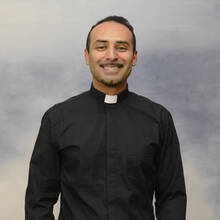Does Your Church Resemble the Crowds that Once Flocked to Jesus?
In the first chapter of Mark’s Gospel, Jesus arrives on the scene with charisma, magnetic appeal and power. When Jesus calls his first disciples they immediately leave behind their occupation and family to follow him (Mk 1:16-20). When an unclean spirit speaks to him, he silences it and expels it from the possessed person (Mk 1:26). In this Sunday’s Gospel reading, even a skin disease cannot continue to exist in Jesus’ presence. “‘If you wish, you can make me clean,’” says the leper to Jesus. The evangelist then provides a key insight, “Moved with pity, he stretched out his hand, touched him, and said to him, ‘I do will it. Be made clean’” (Mk 1:40-41).
He remained outside in deserted places, and people kept coming to him from everywhere. (Mk 1:45)
How does your church community act to heal those who seek help?
What role does compassion have in your life right now?
How are you responding to those whom society has forgotten?
Pity is a new element in Mark’s account. Not only does Jesus heal and cast out demons through the Father’s authority, he also has a heart that can be moved by the human condition. This Sunday’s Gospel passage is the first instance of the movement of Jesus’ heart, but it is not the last. In addition to Mark 1:40, Jesus is also moved with pity for the hungry crowds that follow him into the desert (Mk 6:34; 8:2) and for the family of a boy convulsed by an unclean spirit (Mk 9:22).
Jesus’ actions establish a clear pattern: When the most desperate cases and situations are brought to him, he responds without hesitation. Even individuals whose conditions frighten others, and who would have been considered “unclean,” move his heart and receive his help. Although in his speech, Jesus continues to operate within these social ideas (“be made clean”), in his actions Jesus subverts them. The movement of his heart overcame any social conditioning that he might have learned about things like “clean” and “unclean.”
The man with leprosy, after being cleansed, spread the good news about Jesus everywhere, and crowds now formed wherever Jesus went. Mark recounts that these crows were so vast that “He remained outside in deserted places, and people kept coming to him from everywhere” (Mk 1:45). These crowds that gathered around Jesus, with their illnesses, unclean spirits and sins in need of forgiveness, formed, in essence, the original church.
Mark the evangelist holds up this “church of the desperate” not just to recount the history of Jesus’ ministry but to challenge the churches of his own day to similar efforts. As we read these Gospel passages centuries later, Mark offers us the same challenge: Do the people in our churches today resemble the crowds who flocked to Jesus centuries ago? Or have we given in to divisive social ideas that keep the desperate at a distance? When our churches resemble the community that gathered around Jesus, we can rest assured that his heart is still alive and beating among us.








